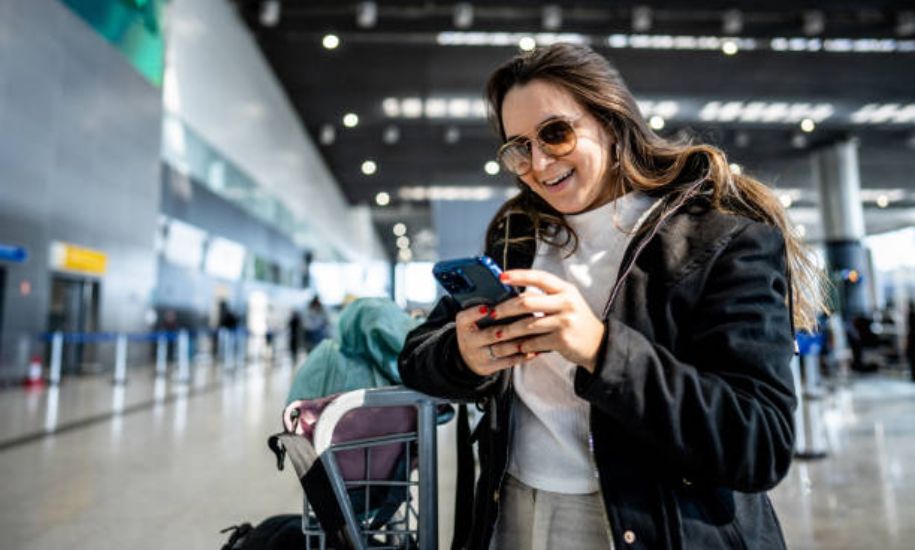Which of The Following is Not a Traveler Responsibility? A Detailed Guide

Traveling, whether for business, leisure, or personal reasons, comes with a set of responsibilities. Travelers are expected to follow guidelines, respect local customs, and adhere to financial and ethical policies. However, not every task or duty associated with travel falls under the responsibility of the traveler. In this detailed article, we will explore the responsibilities travelers typically have, identify duties that do not belong to them, and clarify misconceptions about traveler obligations. By the end, you will have a clear understanding of “Which of The Following is Not a Traveler Responsibility?”
Understanding Traveler Responsibilities
To define what is not a traveler’s responsibility, we first need to outline what a traveler is typically expected to do. Responsibilities generally fall into categories such as financial compliance, safety, adherence to travel regulations, and ethical conduct.
Common Traveler Responsibilities
- Following Travel Guidelines and Policies
- Travelers must comply with the regulations set by airlines, hotels, travel agencies, and international travel authorities.
- Adherence to baggage weight limits, security protocols, and check-in procedures is required.
- Maintaining Valid Documentation
- Carrying necessary identification such as passports, visas, and travel insurance is a fundamental responsibility.
- Ensuring documents are up to date and accurate is crucial to avoid travel disruptions.
- Managing Expenses and Reimbursements
- Business travelers are responsible for keeping accurate records of their expenses and submitting them for reimbursement.
- Avoiding unnecessary expenditures and following company or government travel budget guidelines is essential.
- Respecting Local Laws and Customs
- Every traveler must respect the traditions and legal systems of their destination.
- Offenses such as littering, public disturbances, or violating local dress codes can lead to fines or even legal action.
- Ensuring Personal Safety and Security
- Travelers should be cautious about personal belongings, avoid unsafe areas, and stay aware of their surroundings.
- Following emergency protocols and being informed about the location of embassies or consulates is advisable.
- Making Ethical and Environmentally Friendly Choices
- Being a responsible traveler includes minimizing the environmental impact by avoiding waste, respecting wildlife, and reducing carbon footprints.
- Supporting ethical tourism, such as responsible animal interactions and eco-friendly accommodations, is recommended.
Which of The Following is Not a Traveler Responsibility?
Now that we have discussed what travelers must do, let’s identify responsibilities that do not fall on the traveler.
-
Enforcing Travel Laws and Regulations
- Travelers must follow rules, but they are not responsible for enforcing them.
- It is the duty of airport security, immigration officers, and local law enforcement to ensure compliance.
-
Providing Emergency Assistance to Others
- While it is commendable to help fellow travelers in distress, there is no legal obligation to do so.
- Trained emergency responders, law enforcement, and consulate officers handle crises.
-
Resolving Airline or Hotel Policy Disputes
- If a traveler encounters an issue with airline policies, it is the responsibility of customer service representatives or legal teams to resolve disputes.
- Travelers can file complaints but are not required to settle conflicts.
-
Handling Lost or Stolen Items of Other Travelers
- A traveler should report lost or stolen items but is not responsible for investigating or recovering them.
- Local authorities, lost and found departments, and security teams manage these situations.
-
Providing Travel Insurance Coverage
- Travelers can purchase insurance but are not responsible for offering coverage to others.
- Insurance companies and travel agencies handle claims and reimbursements.
-
Managing Transportation and Infrastructure Issues
- If a train is delayed or an airport has inefficiencies, it is not the traveler’s responsibility to resolve such issues.
- Transportation authorities and infrastructure managers handle these concerns.
-
Ensuring Other Travelers Follow Rules
- While travelers should lead by example, they are not accountable for the actions of others.
- Security personnel, airline staff, and local authorities monitor and enforce rules.
Misconceptions About Which of The Following is Not a Traveler Responsibility
There are many misunderstandings about what a traveler must do. Some people believe travelers are responsible for:
- Educating others about customs and local laws (This is the role of travel guides or local authorities.)
- Cleaning up public spaces (While travelers should not litter, maintenance and sanitation teams handle waste disposal.)
- Offering medical assistance to strangers (Only qualified medical professionals are responsible for such tasks.)
Final Thoughts
Understanding “Which of The Following is Not a Traveler Responsibility” helps ensure a smooth journey while avoiding unnecessary burdens. As a traveler, your role is to follow regulations, prioritize safety, and act responsibly. However, enforcing laws, resolving disputes, and managing infrastructure issues are not your duties. By knowing the boundaries of your responsibilities, you can travel confidently and enjoy your experience without undue stress.
For more insights on travel tips and responsibilities, visit our blog site Mating Press.



